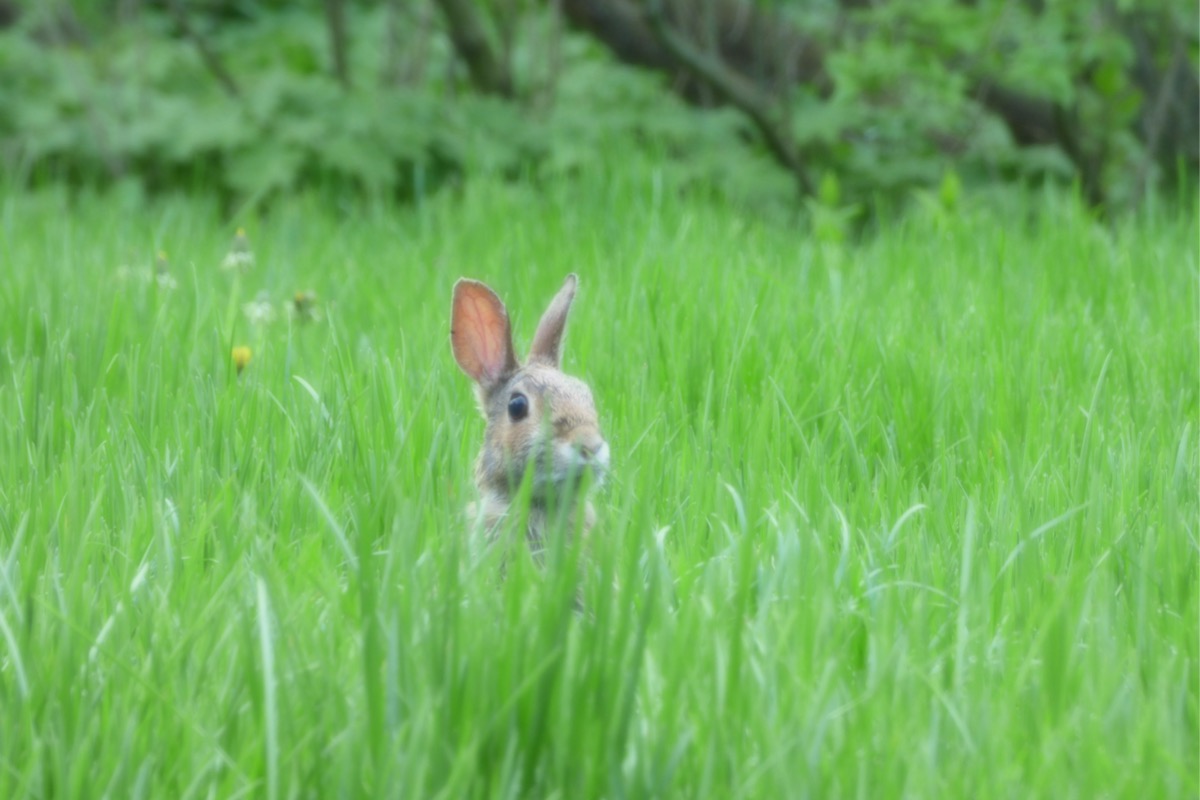

We may earn revenue from the products available on this page and participate in affiliate programs. Learn More ›
If your garden has shown excessive rabbit damage in recent years, it might be because the critters are growing in number. These cute little creatures reach nuisance levels every few years in some areas because of the cyclical nature of their reproduction.
When the rabbit population swells, gardeners experience losses as hungry bunnies feed on lush greenery throughout spring and summer and tender woody plants in winter. After about a decade of population growth, rabbit numbers crash as foxes, coyotes, hawks, and other natural predators hunt them.
In the meantime, gardeners need solutions. Fences and repellents help protect susceptible garden plants from these hungry pests. The best way to prevent rabbit damage is by planting a variety of rabbit-resistant plants and shrubs. Most rabbit-repellent plants feature one or more of the following characteristics that make them less appealing as rabbit food:
- Unpalatable foliage that is spiky, jagged, prickly, fuzzy, or leathery
- Toxic flowers
- Leaves, stems, and flowers with strong fragrance
- Stems with an abundance of sticky sap
Read on for our top picks for rabbit-repellent perennials and annuals for your garden and landscape.
Rabbit-Resistant Perennial Plants
Hardy perennial plants grow back year after year—if the local bunny population lets them grow. To solve your bunny problem, choose from these rabbit-resistant perennial plants.
1. Aster (Aster spp.)
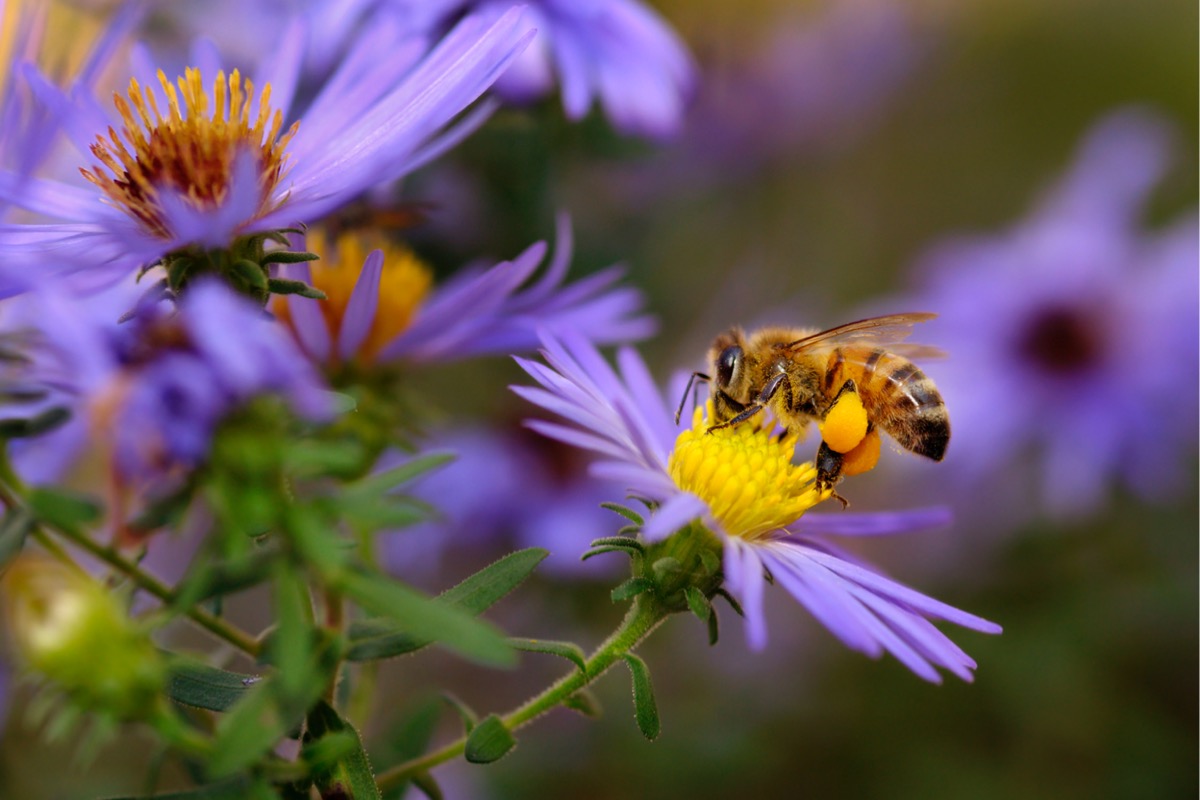
Some rabbit-resistant perennials perform double duty by also attracting pollinators. Asters are wildly popular with bees and butterflies. These easygoing sun-lovers require no special care or attention. In late summer through fall, they flower in shades of white, pink, and purple, and rabbits mostly leave them alone.
2. Butterfly Weed (Asclepias tuberosa)
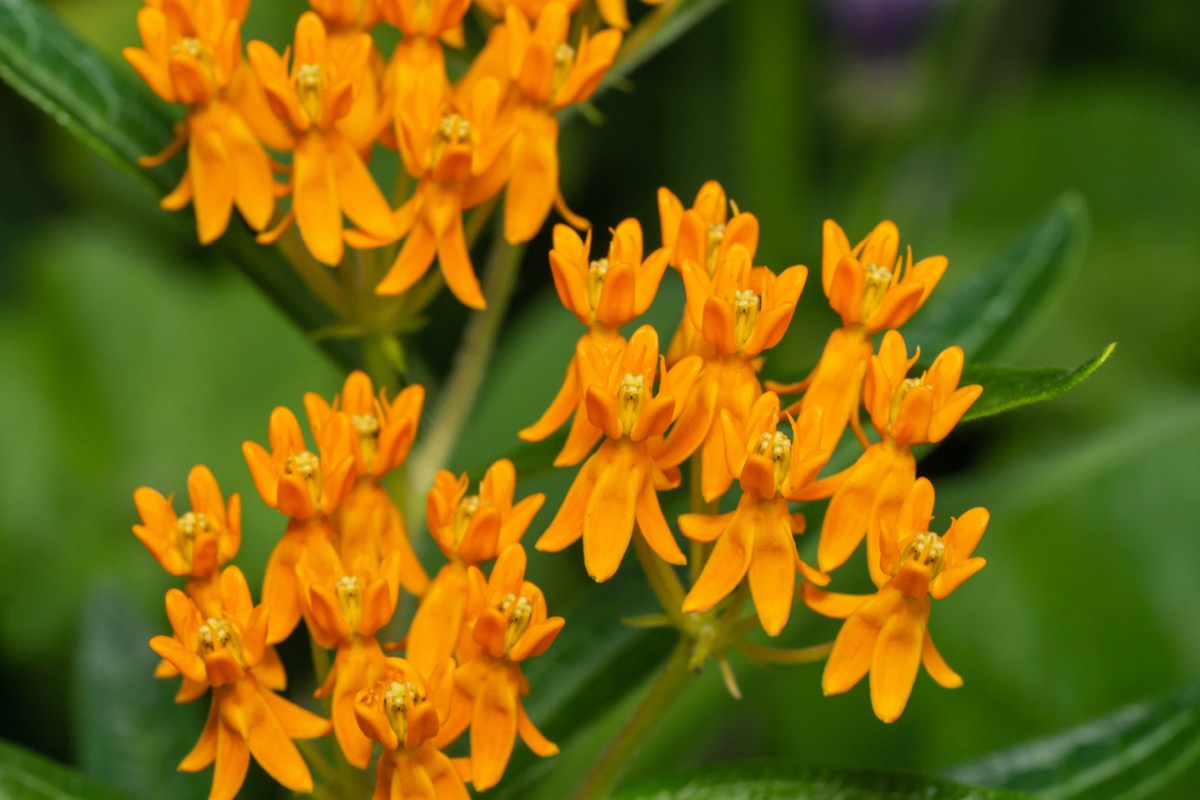
The bright orange summertime flowers of butterfly weed are becoming more common sights along roadsides, old fields, and in pollinator gardens. One of the more refined milkweed species, the plant’s compact mounding form thrives in pollinator gardens, where it supports migrating monarch butterflies. But the mild toxicity of the flowers and foliage repels rabbits.
3. Coral Bells (Heuchera spp.)
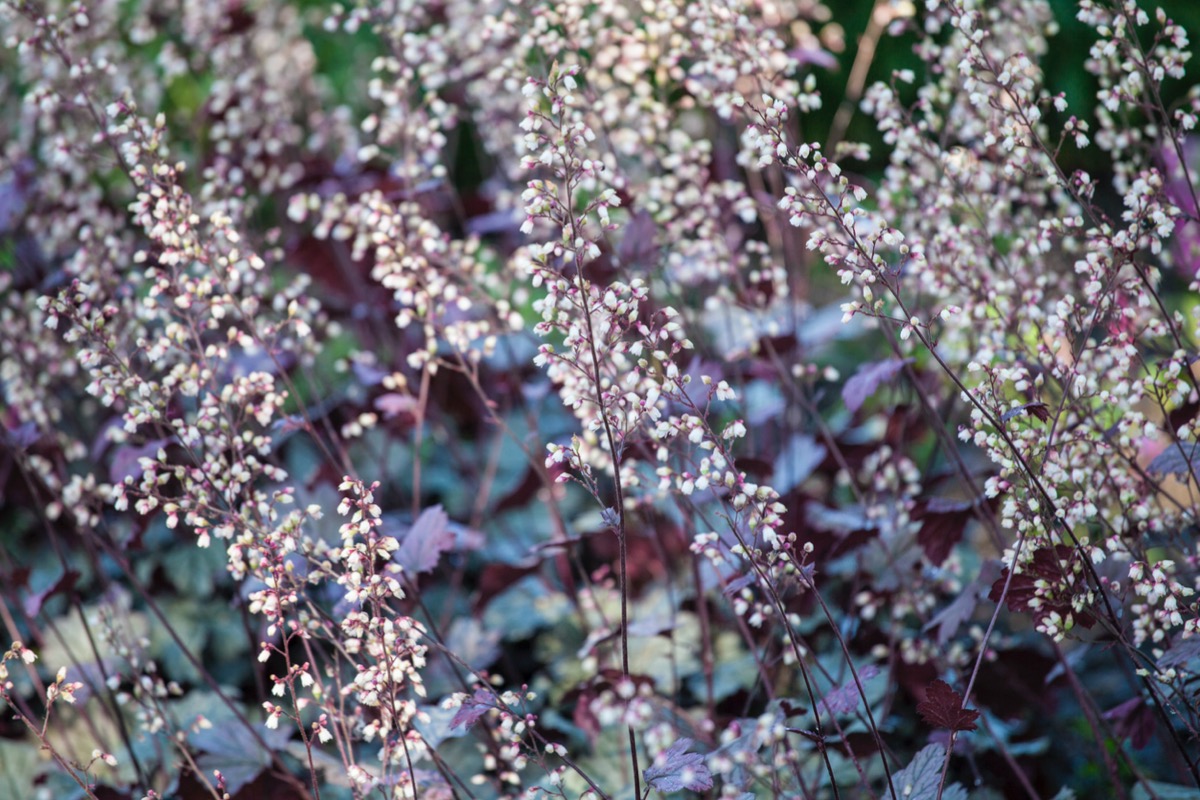
Shady gardens need rabbit-resistant shade plants. Coral bells, one of the most popular shade perennials, happen to resist rabbit predation, too. Coral bells offer lush foliage in a huge diversity of textures and colors, from black-purple to green, gold, orange, or chartreuse, and they can thrive in nearly any yard. Their blooms range from insignificant spikes of tiny pink or white flowers to something slightly more showy, but the foliage remains the star of the show.
4. Daylily (Hemerocallis spp.)
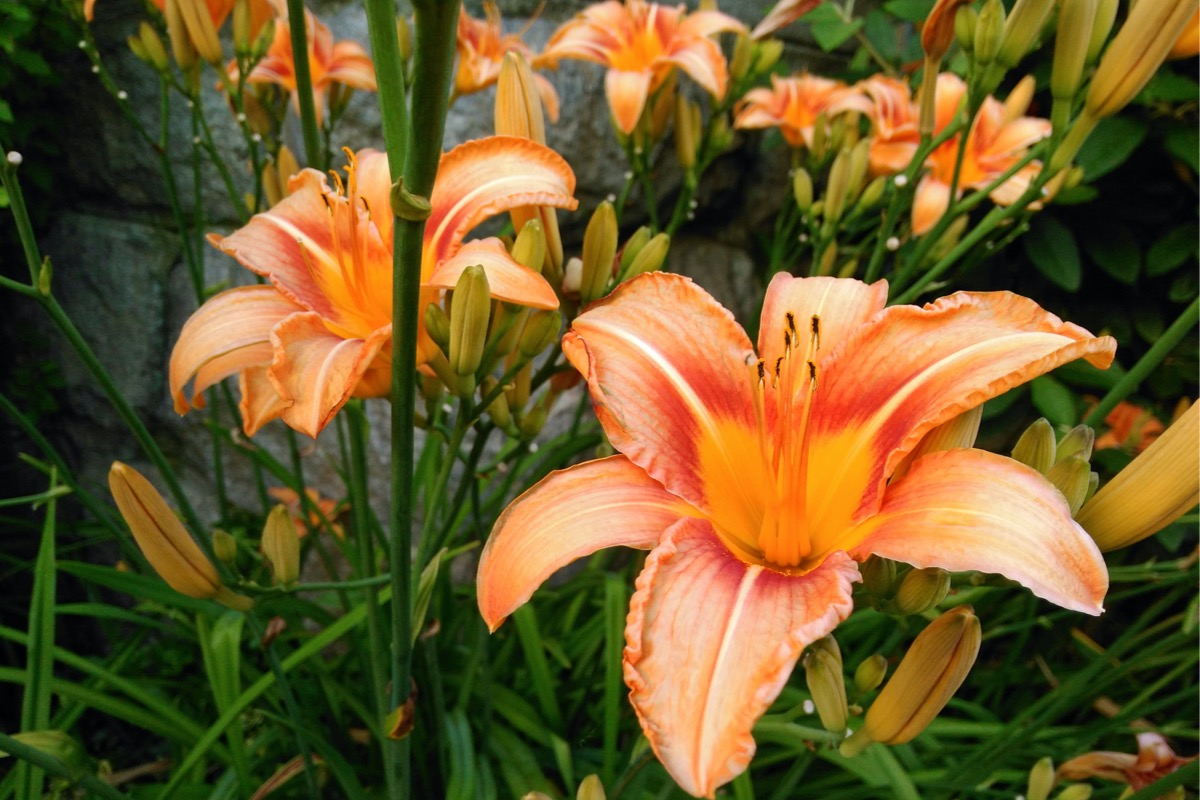
Daylilies are the classic harbingers of summertime in the garden. Best of all, bunnies leave them alone. They offer narrow strap-like foliage and large brightly colored flowers to complement any color palette, and they are easy to grow. Plant daylilies in full to partial sunlight, preferably in moist soil that drains well.
Related: How To: Make and Use Your Own Deer Repellent
5. Solomon’s Seal (Polygonatum biflorum)
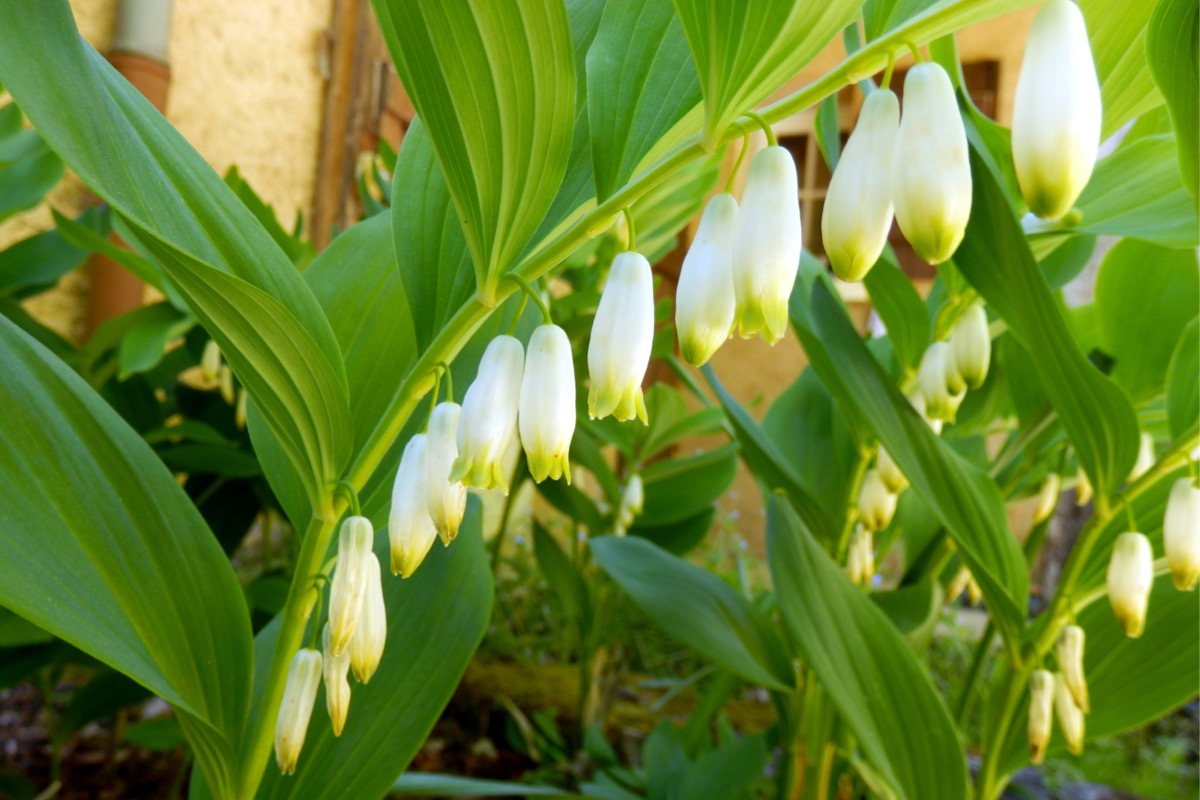
Another excellent rabbit-resistant choice for shady gardens is Solomon’s seal. These plants emerge as spreading colonies of narrow arching stems flanked by alternating rows of either medium-green or green-and-white variegated leaves. In late spring, small white flowers dangle from the leaf axils.
6. Tickseed (Coreopsis spp.)
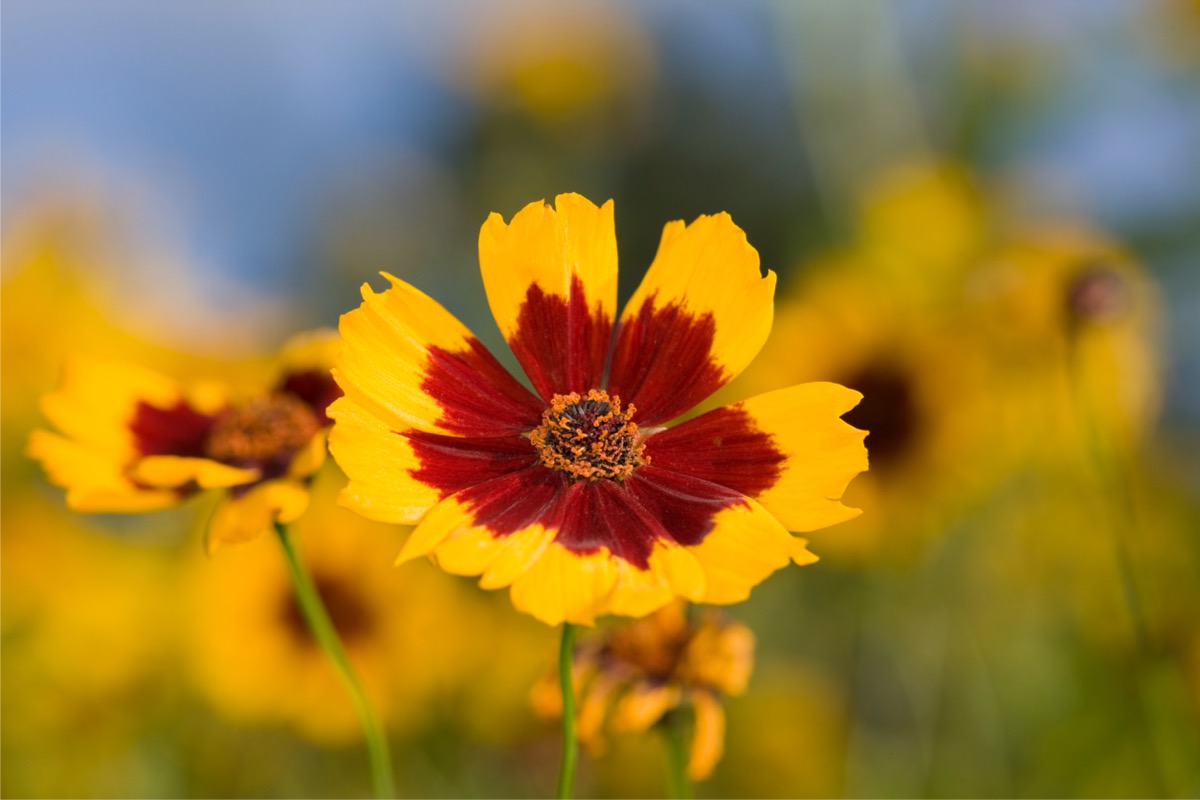
A member of the aster family, Tickseed comes in several forms that produce cheerful summer flowers in shades of yellow, orange, red, or maroon. Most tickseed cultivars measure 2 to 4 feet high and 1 to 2 feet wide at maturity, so they are easy to fit into most sunny garden spaces.
Annual Plants That Repel Rabbits
Annual plants complete their entire life cycle within a single growing season. They are popular for planting in colorful beds and containers thanks to their prolific bloom cycles, which last all season. The following are some of the best annual plants that repel rabbits.
1. Spider Flower (Cleome spp.)
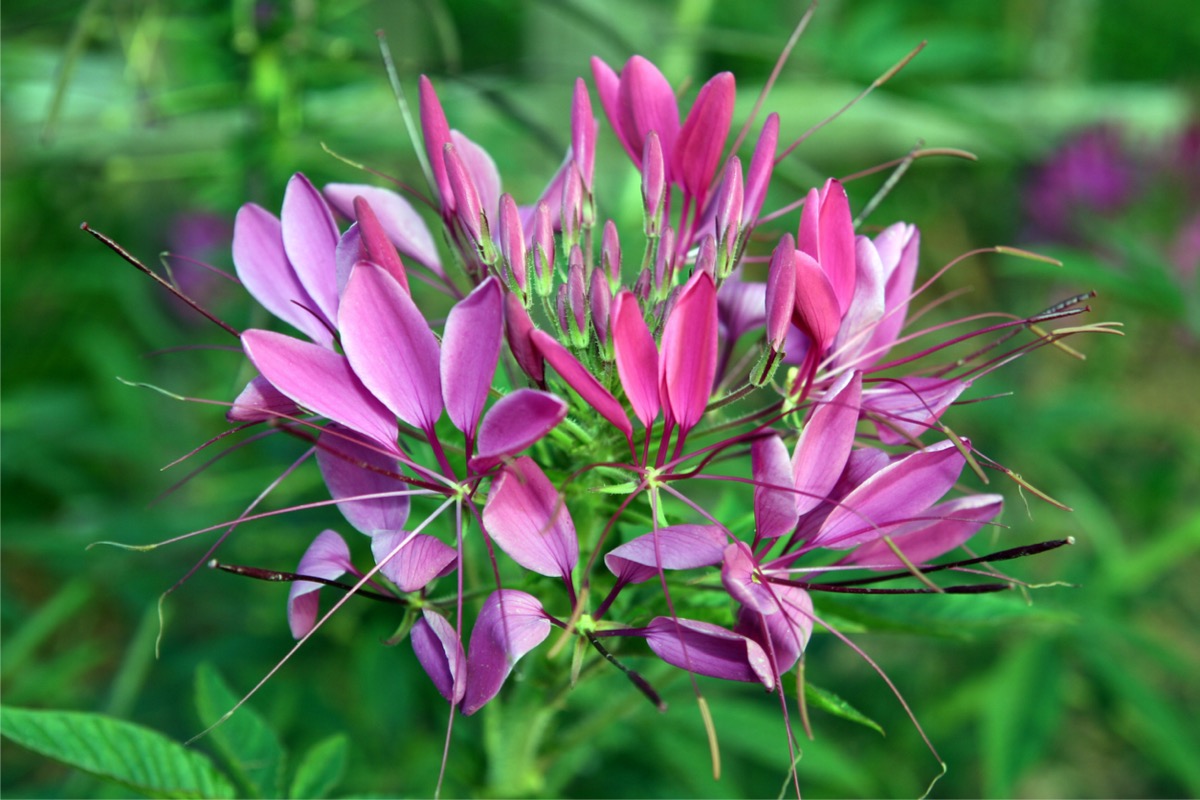
Spider flowers grow tall and fast in sunny gardens. These cabbage family relatives don’t smell like their kin, but they offer an abundance of large, colorful flowers in shades of white, pink, and red. They feed bees and butterflies and self-sow their seeds prolifically. You may only need to plant them once for many years of beautiful summer flowers.
2. Marigold (Tagetes spp.)
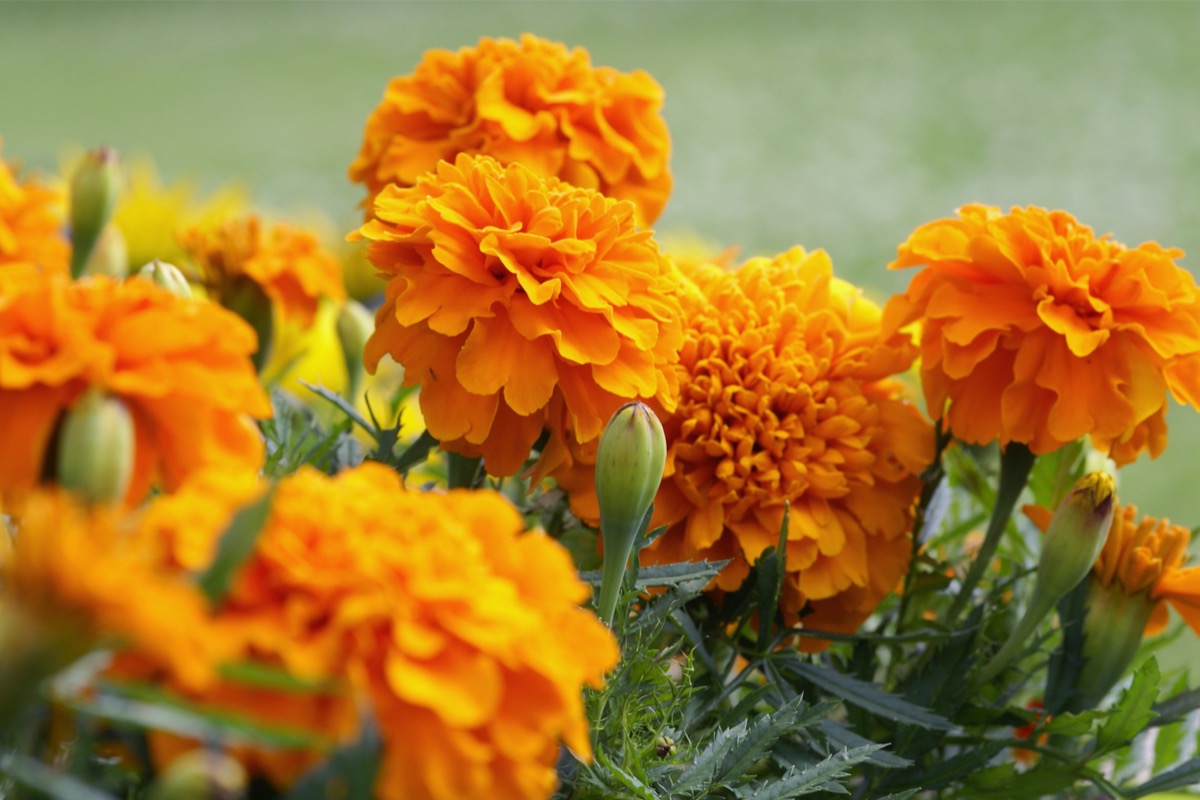
Marigolds have a well-earned reputation for repelling numerous garden pests, but do rabbits eat marigolds? Nope. Whether you love the strong aroma of marigold or not, rabbits tend to avoid it. Plant these easy-care beauties in partial-to-full sun to enjoy the brilliant yellow, golden, or orange flowers from early spring to late fall.
Related: 15 Plants to Grow for a Pest-Proof Yard
3. Salvia (Salvia spp.)

Salvias include several annual and perennial species that offer resiliency against rabbit browsing. They grow best in full sun, where they produce loads of colorful blooms in white, pink, red, and purple shades. Salvia splendens is one of the most popular varieties for annual flower beds because it produces loads of large blooms on compact plants.
4. Snapdragon (Antirrhinum spp.)
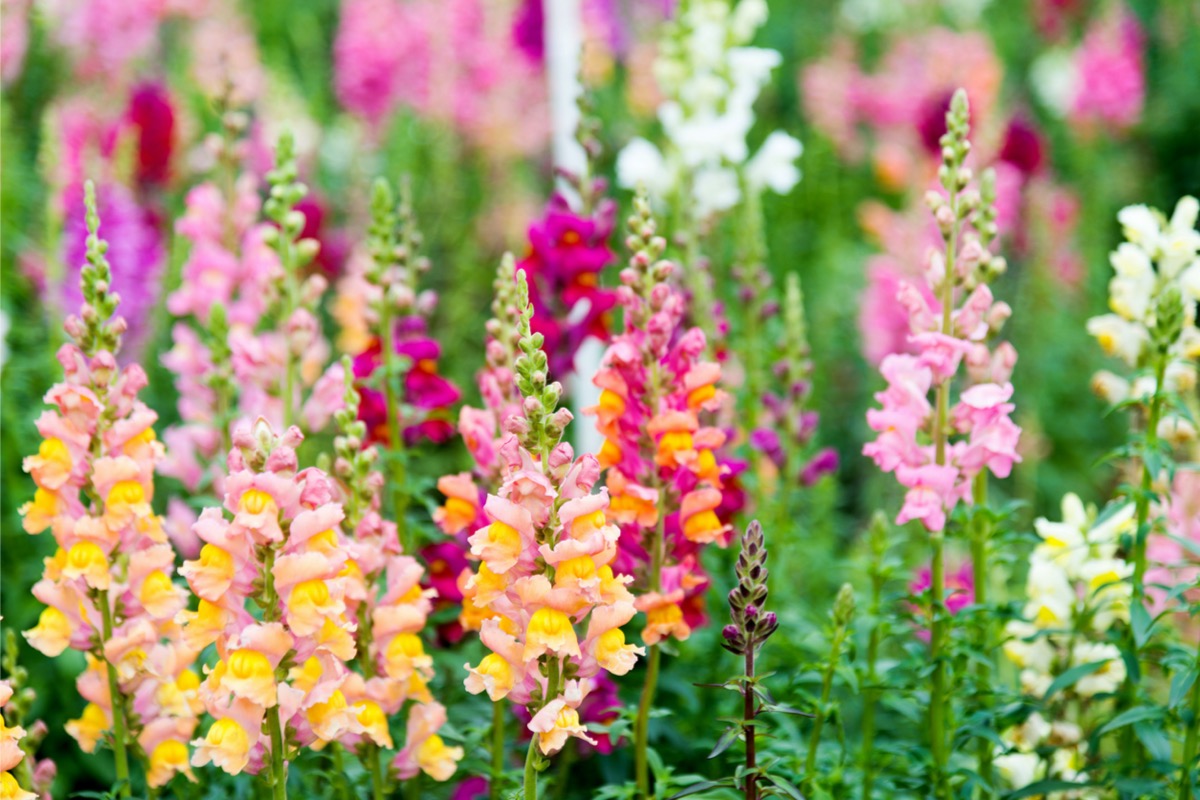
Snapdragons grow best in spring and fall, when temperatures are mild but not too hot or cold. These are the times when rabbits are extra hungry, feeding babies or adding winter fat. But compounds in the flowers and foliage protect snapdragons from rabbits. Choose from standard or dwarf cultivars in dozens of colors. Plant snapdragons in full to partial sunlight.
5. Verbena (Verbena spp.)
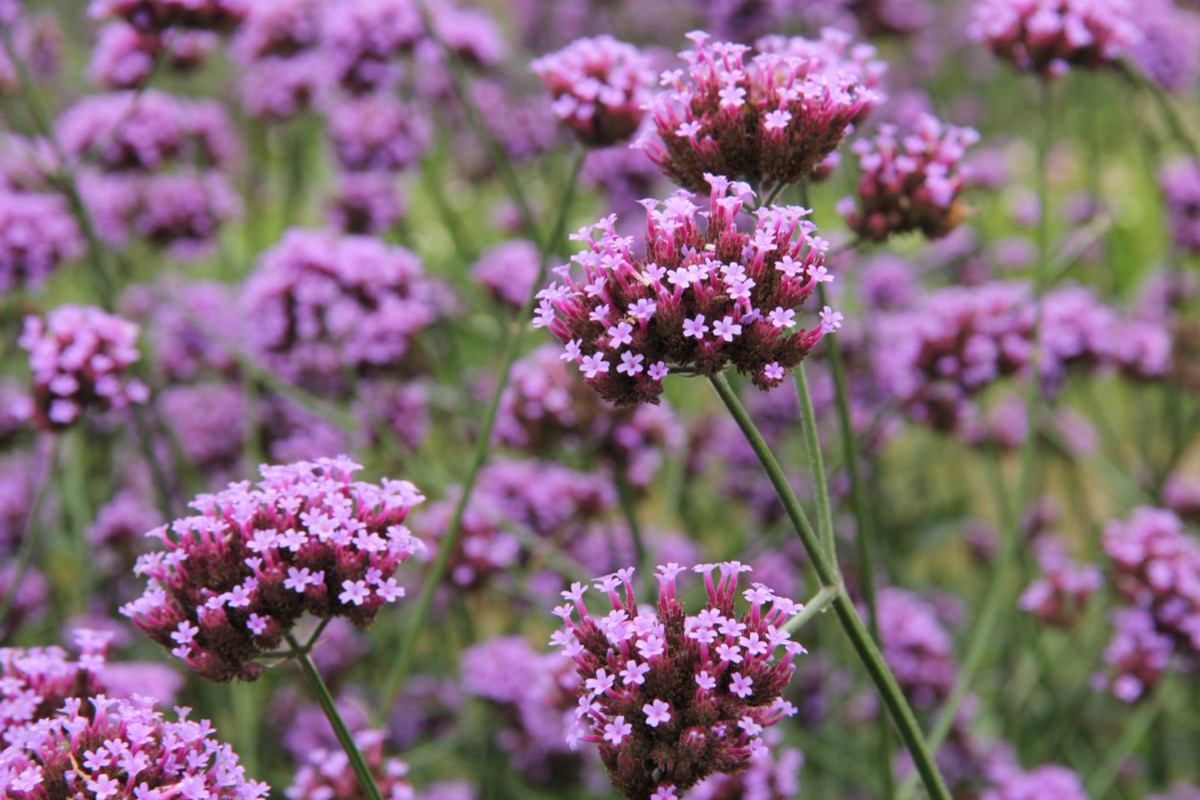
Verbena is a group of low-growing annuals with a mounding or spreading growth habit that often graces the front of a garden bed, container gardens, or hanging baskets. Verbena flowers range from pure white to shades of red, pink, or purple. The small tough foliage has a distinctly sharp taste that rabbits tend to avoid.
6. Zinnia (Zinnia spp.)
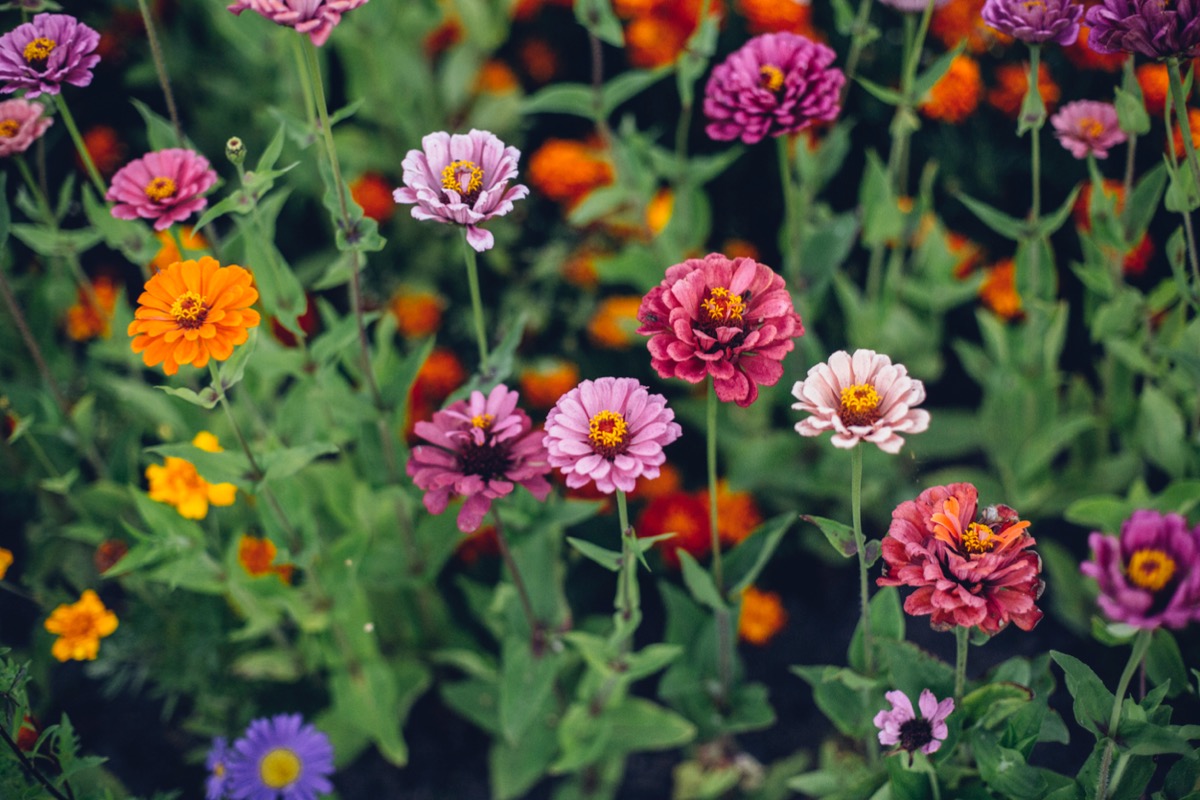
Zinnias are some of the most popular annual flowers because they are durable and easy to grow in harsh conditions. They come in dozens of size categories, bloom colors, and flower types. Hot sun and drought are no trouble for these rugged flowers (which should be planted in full sun), and they are loved by pollinators and seed-eating songbirds alike. However, rabbits prefer to stay away.
